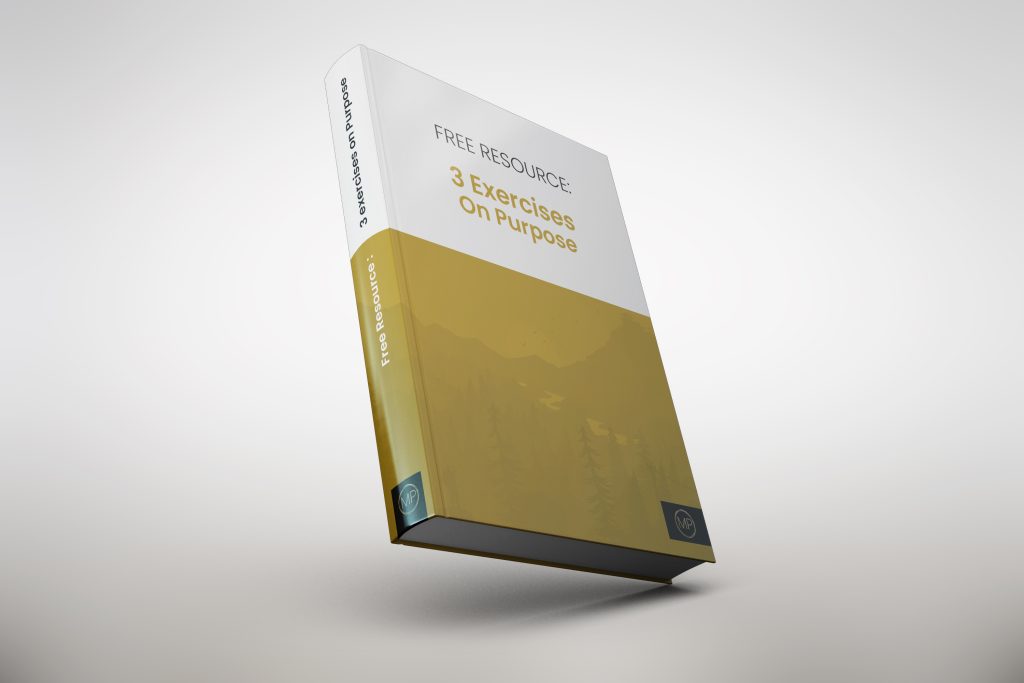“Because one believes in oneself, one doesn’t try to convince others. Because one is content with oneself, one doesn’t need others’ approval. Because one accepts oneself, the world accepts him or her.” – Lao Tzu.
Our self-image can be very important to us as it is how we see ourselves fitting into the world and how we assume others see us as well. This image of the self can channel our actions and make an impact in each facet of our lives. It can have and also be influenced by our families, social groups, work, education and much more. No matter what you think of yourself today or no matter what you hold close to your heart, we will explore in this article the very truths about why you are unique and how you can have a better relationship with your true self.
What is self-image?
Self-image or the Self-as-story is the way in which we view ourselves as individuals and how we make sense of ourselves in the world. A fun example of this could be with photos from holidays and special occasions whereby we often look at ourselves first in the photo. We are social creatures and we want to have a place within social dynamics and our brains naturally want to find meaning and make sense of the world and our place within it. An example of this would be taken from Vos;
“Developmental neurological studies show for instance how babies initially have the primary experience of dots, unstructured chaos and few meanings, but relatively quickly they identify meanings in this chaos.” Vos, Joel. Meaning in Life (p. 43). Macmillan Education UK. Kindle Edition.
How does self-esteem impact self-image?
Self-esteem can be viewed as how well we measure ourselves as an individual within a certain life domain. For example if you regularly run you may feel confident that you can complete a 10km charity run and you would enter this task with high levels of self-esteem and after competing this task you would further compliment your self-esteem.
If you valued your self -esteem with material possessions and finances, for example you had lot’s of money and a fancy car, then on entering a wealthy region whereby others had more money and more expensive cars then your level of self-esteem would go down. This in turn would make you question your self-image as to you and only you within that domain you are no longer the ‘wealthiest.’

What can influence our self-image?
As we grow up our ego or self-as-story (there are different terms from varying schools of philosophy and psychology) develops and we create our own self-image. Our parents, families, social groups, teachers, the media, social media and more influence our self-as-story and hence influence our self-image.
Were you taught to be kind and compassionate?
Were you taught to win at all costs?
Were you surrounded by those who valued money first?
Were you surrounded by those who valued beauty first?
Is it important to have a big car?
Is it important to have many social groups?
And so on…..
More information on how our self / ego develops can be found our blog article – Ego and Suffering – Meaningful Paths
This study discusses how impactful family influences can be on adults years later – The family environment in early childhood has a long-term effect on self-esteem: A longitudinal study from birth to age 27 years. – PsycNET (apa.org).
Age can also have a bearing on our self-image. If we value beauty highly then as we get older, our skin will age, our hair will change, our metabolism will change and so on. The following study discusses how our self-esteem can change with age – Self-esteem declines sharply among older adults while middle-aged are most confident (apa.org).
The people we spend time with can influence us tremendously and how we conform to society.
These influences and our self-image change our actions and the challenge that we have is we begin to ‘need’ to continually ‘feed’ our self-image. We base our self-worth against a measurement. In reality you are good enough as you stand today.
“Each tree is different, they have different shapes, some have leaves, some have fruits, some are tall, some are small. But they all have a special place in the forest, you are unique, like a tree… you are strong. “ – Kamila; Meaningful Paths Mind & Body Coach.
Self-image issues
Self-image can cause a range of issues for our self-esteem and well-being. For example if we have been brought up to value beauty by influences described above then we may act in accordance to those pressures. Magazines and particularly social media ‘filter and perfection’ concepts can put pressure on individuals to match up to false standards. Eating disorders can also develop from such pressures. For more information on eating disorders please see more here –Body Image & Eating Disorders | National Eating Disorders Association.
Pressures to conform to societal groups so that we ‘appear’ a certain way and are identified in a way which matches our self-image can cause actions outside of our comfort zone. Self-image and societal pressures can be very challenging for gay sports stars as U.S Olympian Adam Rippon describes here – Coming out: still a hurdle too high for many gay sports stars? | Reuters. This particular topic goes much deeper than ‘wanting to appear a certain way.’ It is linked to depth of identity, our self-as-story and masses of societal pressure.

Examples of positive self-image
Self-acceptance is the process of accepting your self as you are whereas in comparison self-esteem is measured against an outcome for example ‘I feel worthy because I achieved X or because Y happened to me.’
Having high self-esteem can be a good thing, albeit it is important to understand the mechanics of what is going on and to begin to create a healthy relationship with the self via self-acceptance.
Having a positive self-image can allow you to handle criticism in a healthier manner and enable you to value yourself more and value others more. You may value yourself higher than another person leading to arrogance but you can then also devalue yourself if someone is ‘better’ at that activity in that life domain. Therefore self-acceptance allows us to value ourselves and others in a healthy and compassionate way. People who practice self-acceptance push on to achieve what is right for them and it also involves growth in a healthy and compassionate way for yourself.
Please see more on self-esteem and self-acceptance in our blog article – You Are Good Enough And This Is Why – Meaningful Paths
The NHS has a helpful article on self-esteem as well – Raising low self-esteem – NHS (www.nhs.uk)
How to improve your self-image and self-esteem?
- Be kind to yourself and to others – Begin to practice self-acceptance and create a healthy relationship with yourself and others. Explore this further in our article You Are Good Enough And This Is Why – Meaningful Paths.
- Build up your relationships – If you surround yourself with supportive people then you will learn from them and grow in a supportive environment. It is often our environment and nurture that trumps nature. Offer to help a local charity and meet kind, positive individuals on a journey of growth.
- Challenge yourself – The major road block from where you are today and where you want to be is a skill set or series of skill sets. Start new hobbies, push your boundaries and meet others along that journey. Ideally diversify your hobbies for example, take up an outdoor activity such as a running club, or hiking; volunteer for a charity and use your time or current skill sets; create a fun colourful savings and financial plan; improve your diet; sign up to a challenge such as a charity run at the end of the year. These new skill sets will improve your confidence and ability to navigate through your life and the world.
- Practice a positive mindset – According to Lyubomirsky, Sheldon & Schkade (2005), only 10% of circumstances affect our happiness, 40% of our happiness is due to our thoughts and actions and 50% due to genetics (serotonin levels and more). It is important also to note that these may vary to some degree for some individuals, although this model is highly supported. Having said this what is exciting is that a large percentage of our happiness is down to how we think and act which we have freedom of choice over. Read our blogs and watch our webinars and interview archives for more information on how to have a growth and positive mindset. Mindset Coaching can also be a great way to help you adapt to a positive mindset. Mindfulness exercises and meditations and more can be found on our page Calm.

A conclusion of thoughts
It is very normal to doubt yourself and your place in the world. This is natural, often at a play and you are definitely not alone. Many people will be experiencing similar feelings to you right now, with similar scenarios, however whilst completely respecting your uniqueness. I highly recommend exploring our article You Are Good Enough And This Is Why – Meaningful Paths and practicing the exercise here about self-esteem and self-acceptance. This will help you gradually put things into perspective. Practice self-acceptance in addition to mindfulness based practices and meditations. Make a list of three new hobbies you can explore that organically increase your confidence and skill sets. Take one step at a time with daily and weekly manageable tasks. I cannot highly recommend volunteering for a charity enough as not only are you being kind to others and helping people, you will meet more compassionate individuals and increase your identity in a healthy way and not measured by societal pressures. Feel free to also watch our webinars and interview recordings on happiness and well-being – Interview Archives – Meaningful Paths.
Thanks for listening.
Wishing you health and well-being.
David
References
Body Image & Eating Disorders | National Eating Disorders Association
Coming out: still a hurdle too high for many gay sports stars? | Reuters
https://www.nhs.uk/mental-health/self-help/tips-and-support/raise-low-self-esteem/
LSS2005.pdf (sonjalyubomirsky.com)
Self-esteem declines sharply among older adults while middle-aged are most confident (apa.org)
Social Influence – Psychologist World
Vos, Joel. Meaning in Life (p. 43). Macmillan Education UK. Kindle Edition.
Images
carol-magalhaes-l6NUAYfHhuw-unsplash
jonatan-becerra-Frdj333dsuY-unsplash
maria-teneva-XUbN-rblEfk-unsplash
paola-chaaya-eAkjzXCU0p0-unsplash


